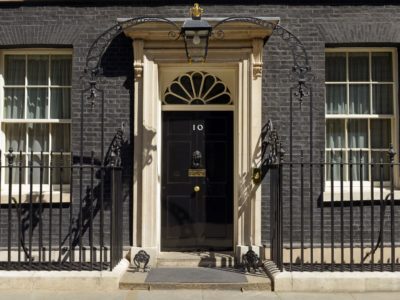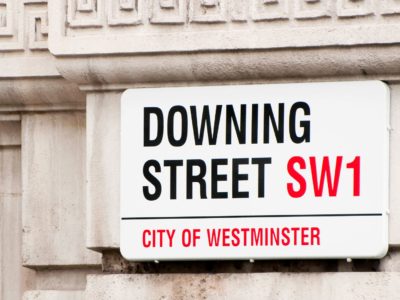As speculation intensifies that a stamp duty cut is set to form a major part of the Government’s mini-budget offering on Friday (23rd Sept, 2022), experts working within the property and finance sectors share their thoughts on how this might impact the UK property market and the wider UK economy.
Tom Bill, Head of UK Residential Research at Knight Frank, comments:
“Nobody can accuse the new government of lacking an economic vision.
If its low-tax approach extends to stamp duty, recent history tells us it will trigger higher levels of demand in the housing market at a time when mortgages are getting more expensive, which will support social mobility.
Prices could spike higher in the short term if supply initially struggles to keep up but more balanced conditions will return provided the cut is immediate and permanent.”
Jeremy Leaf, north London estate agent and a former RICS residential chairman, comments:
“Talk of a possible cut in stamp duty is not altogether surprising when you appreciate what a nice little earner the previous concession proved to be for the government during lockdown.
Even the relatively modest reduction in transactions is having an impact and the government is all too aware of this.
A healthy property market is not just good for the housing industry but for the economy generally because it benefits so many other trades and professions, as well as chiming with the government’s avowed intention to promote growth.
Any announcement would need to come into effect sooner rather than later in order to minimise compromising existing transactions.”
Tomer Aboody, director of property lender MT Finance, comments:
“Any stamp duty assistance would trigger further activity, persuading more sellers to come to the market, which in turn would stabilise the price increases we have been seeing over the past few months.
We have been calling for a reduction in stamp duty for downsizers for some time.
Many feel that the cost of moving is too high and therefore restricts them from selling and freeing up larger family homes so any targeted stamp duty reduction for this group would be particularly welcome.”
Vadim Toader, CEO & Co-Founder of neolender, Proportunity comments:
“A cut to Stamp Duty would show the government recognises the importance of the housing market in fuelling economic growth post-pandemic.
However, as we saw during the last Stamp Duty holiday, it isn’t a silver bullet to making home ownership accessible to all.
Buyers and particularly first-time buyers are unlikely to see a massive difference to their total bottom line.
As more people see now as a good time to buy, competition for the stock available on the market will increase, driving up prices.
What is worse, after the levy reductions finish, house prices are unlikely to drop in line with the duty costs, meaning buying a home becomes even less affordable for those not in a position to move straight away
Instead of gimmicks that only really benefit those who already have the means to buy and move, we need to overhaul access to finance for home ownership.
We’re seeing great innovation in private businesses and fintechs, with products such as mortgage booster loans and rent to buy offerings.
The next step is rolling these out across commercial lenders and brokers and educating buyers on the options available to help them afford the home they want.”
David Alexander the chief executive officer of DJ Alexander Scotland Ltd, which is the largest lettings and estate agency in Scotland and part of the Lomond Group, comments:
“The expected reduction in Stamp Duty Land Tax (SDLT) expected in Friday’s mini-budget must be replicated in Scotland if there is not be a growing divide between the housing market here and in the rest of the UK.
Scots already face much higher taxation when buying a home and any further reduction in the rates in England would only exacerbate what is already an unfair situation.
This move by the Westminster government is clearly aimed at stimulating the housing market and encouraging growth at a time when there are signs of a slowdown.
If the Scottish government cannot match this commitment, and indeed go further, to reduce the disparity between tax levels then I fear that Scots homeowners will be at a greater disadvantage in the future.
I would hope that the forthcoming Scottish budget will raise the level at which first time buyers pay stamp duty to match the English rate of £300,000.
I would also want the 10% starting level to be raised from the current £325,001 to match the English rate of £750,001.
To create a level playing field I would urge the Scottish government to unify stamp duty rates across the country to ensure that homebuyers in Scotland are not unduly penalised for wanting to live here.”
Paula Higgins, Chief executive of the property advice website HomeOwners Alliance comments:
We’ve been campaigning for years for stamp duty to be scrapped completely for those who are buying a home to live in.
It’s a tax that puts families off moving up the property ladder and makes it more expensive for the elderly to downsize. Getting rid of it would be a great boost to the economy because it will get people moving.
However, while there is speculation that stamp duty will be cut, it’s not clear yet whether it will be a reduction in what people pay or if it will be scrapped altogether.
If the government announcement entails simply reducing the amounts people pay, we would welcome targeted help such as increasing the threshold so that more first time buyers don’t have to pay stamp duty.
Our 2022 research found almost a third more first time buyers are having to pay stamp duty than they were 5 years ago when first time buyer relief was introduced. One in four of all first time buyers now pay stamp duty.
Fixing that should be the government’s priority.
Secondly, any cuts need to be permanent.
This would avoid the peaks and troughs and general havoc we’ve seen in previous time-limited stamp duty holidays.
And we need to know the facts as soon as possible. Uncertainty is a disaster for the housing market.
Transactions have already been put on hold up and down the country because buyers quite rightly won’t exchange if they think they might save thousands on their stamp duty tax bill.
However we don’t think Stamp Duty should be cut for those purchasing buy to let properties and second homes.
We believe it’s fair that people looking to make money out of property or buying a second home are treated differently to those buying a home to live in.”























Comments